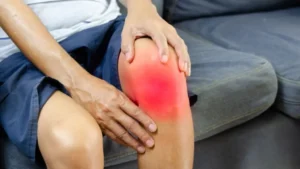Chronic pain is a problem that affects millions of people worldwide. The National Center for Complementary and Integrative Health (NCCIH) reports that an estimated 40 million adults in the United States alone suffer from chronic pain. It is caused by various conditions, including arthritis, back pain, headaches, and fibromyalgia.
Many treatments are available for chronic pain, but finding the right one can be challenging. It is where a APAC Center For Pain Management, a pain clinic in Indiana, comes in. A pain management specialist is a health care provider specializing in diagnosing and treating chronic pain.
How Does a Pain Management Doctor Help?
Chronic pain lasts for more than three months. The pain is caused by an injury, a medical condition, or surgery.
A pain management doctor will work with you to create a treatment plan that may include medication, physical therapy, lifestyle changes, and counseling. The goal of treatment is to reduce your pain and improve your quality of life.
Chiropractic care and non-invasive treatments like acupuncture are sometimes used to treat chronic pain.
Types of Pain Treated
1) Musculoskeletal Pain
This pain includes arthritis, back pain, fibromyalgia, and tendonitis. If you are suffering from these conditions, your pain management specialist will work with you to create a treatment plan that alleviates your pain and improves your quality of life.
Common treatments for musculoskeletal pain include:
- Physical therapy like massage, heat/cold therapy, and exercises
- Medications like NSAIDs, muscle relaxants, and painkillers
- Spinal cord stimulation
- Chiropractic Manipulation
- Percutaneous Electrical Nerve Stimulation (PENS)
- Trigger Point Injections (TPI)
Your pain management specialist will help you find the best treatment or combination of treatments for your particular case.
2) Headaches and Migraines
Migraines are caused by inflammation in the brain and can be very debilitating. In the Emergency Department (ED) setting, headaches account for about 3 percent of all ED visits annually in the United States.
Pain management specialists will often prescribe medication to help ease the pain of migraines. They may also recommend lifestyle changes, such as getting more sleep or avoiding triggers like bright lights or certain foods.
Severe migraine may be treated with injections or nerve blocks. These procedures can help to ease the pain by numbing the nerves that are causing the pain.
3) Post-traumatic Pain
This type of pain is caused by an injury, either to the body or the mind. It can be either short-term or long-term, depending on the severity of the injury. Treatment for post-traumatic pain usually includes both physical and psychological therapies.
Physical therapy can help to reduce the pain and improve the function of the affected area. Psychological therapy can help to address any underlying emotional issues that may be contributing to the pain.
Treatment Methods Offered by Pain Management Clinics
- Joint Injections
- Radiofrequency Ablation (RFA)
- Occipital nerve block
If you are looking for pain management doctors in Indiana, call APAC centers for pain management. We offer different pain management treatments to help you get your life back on track.










